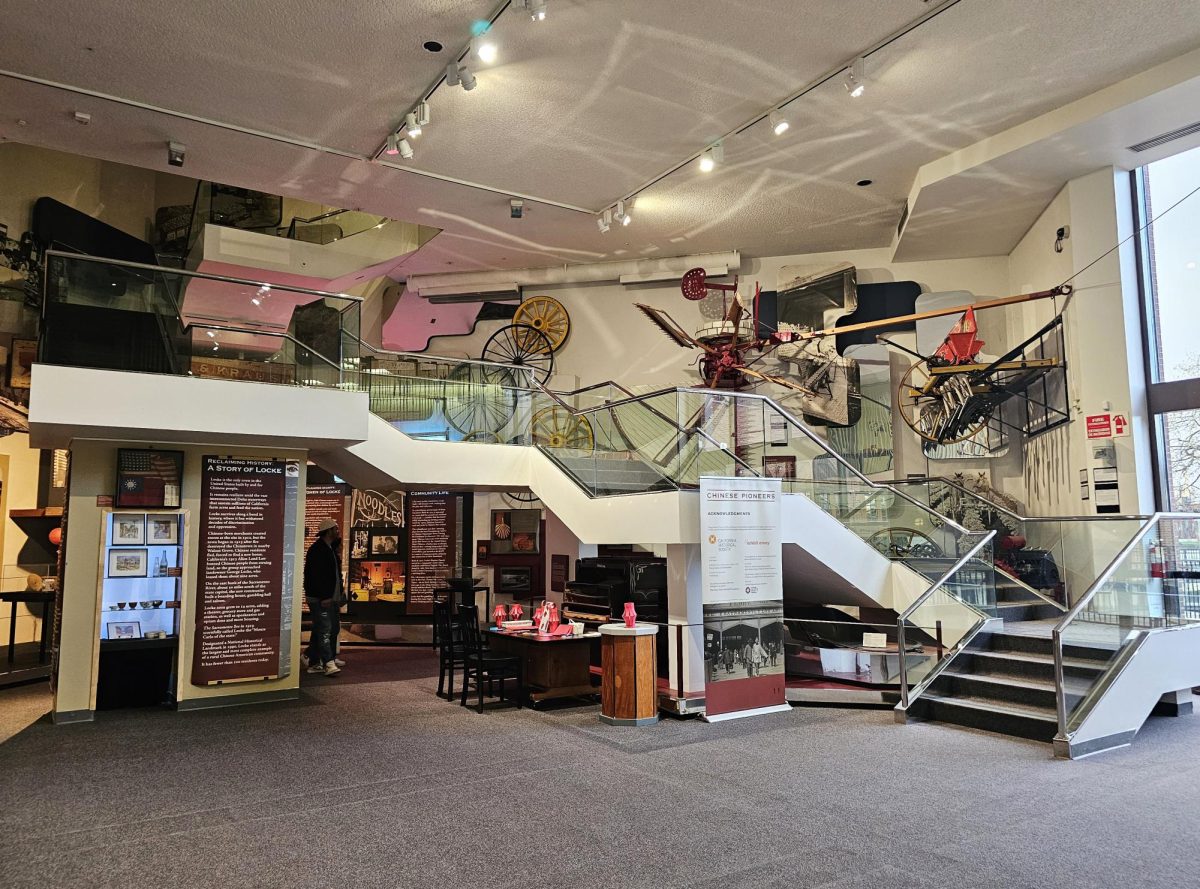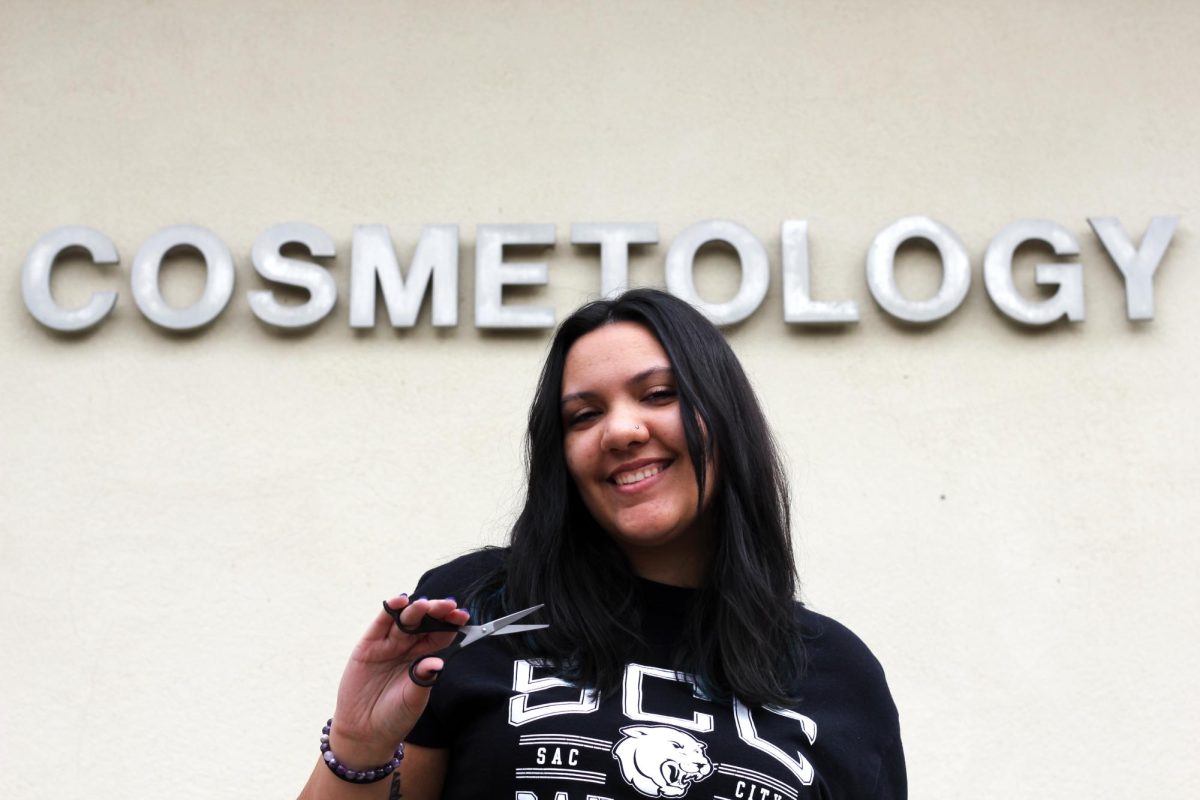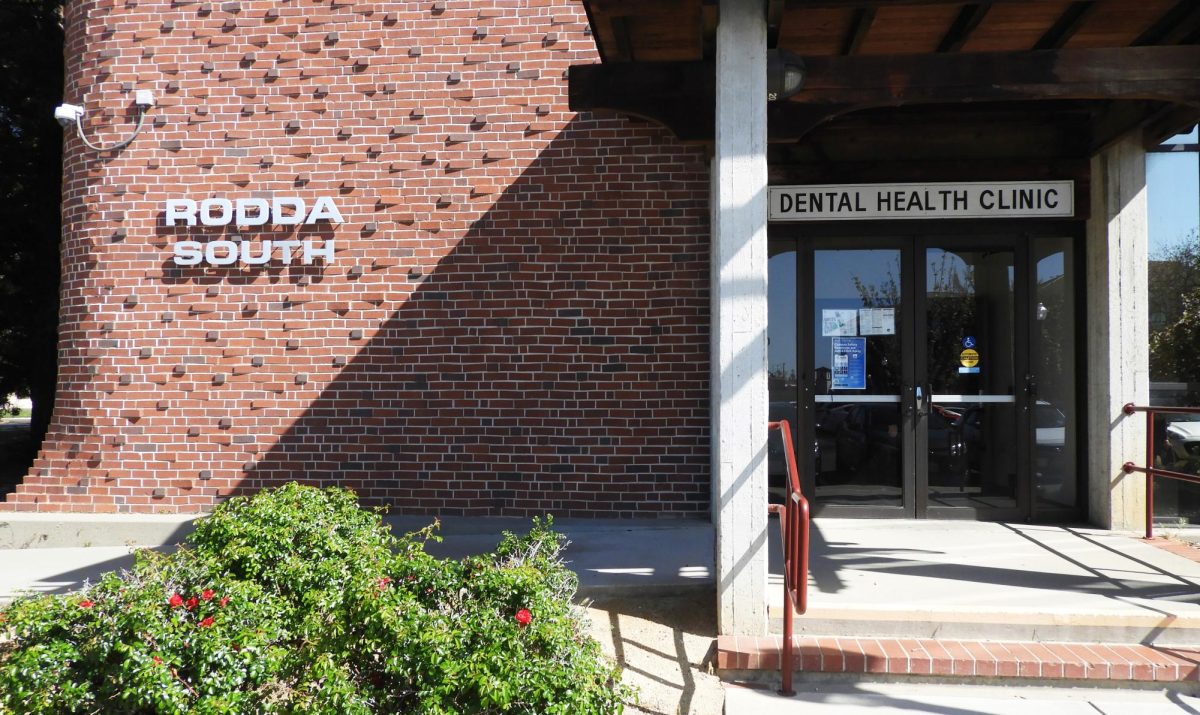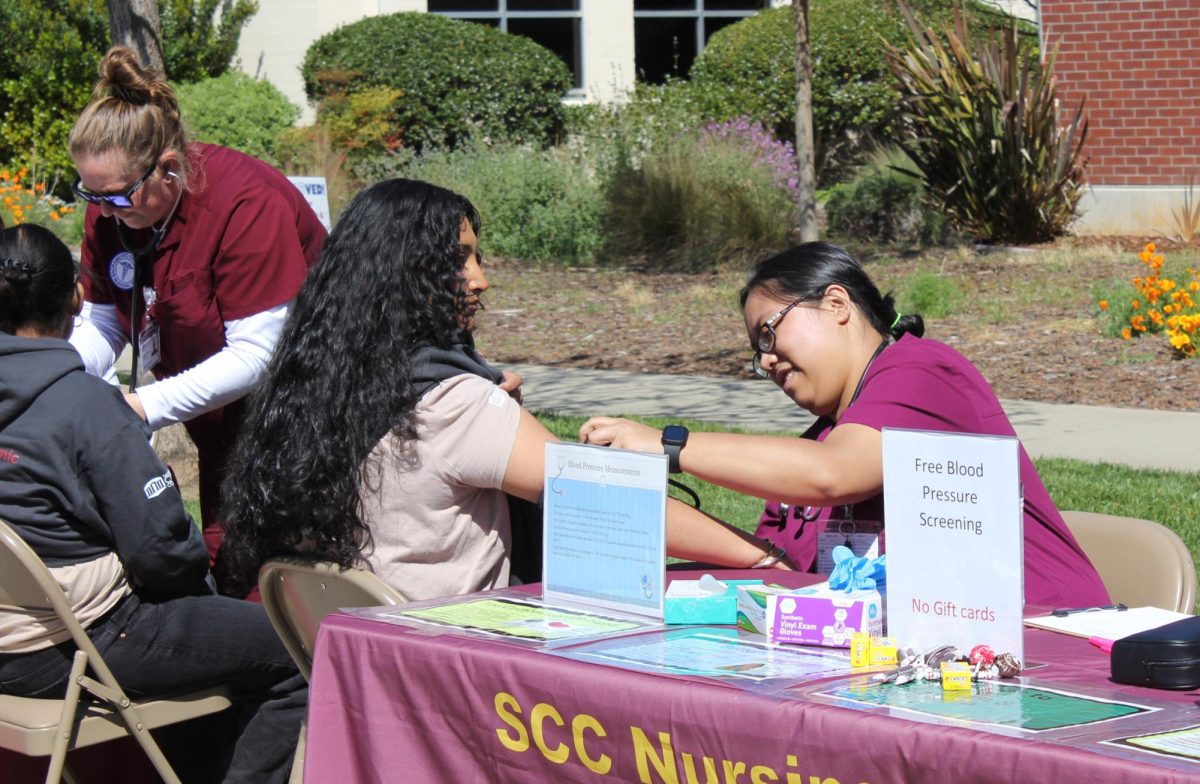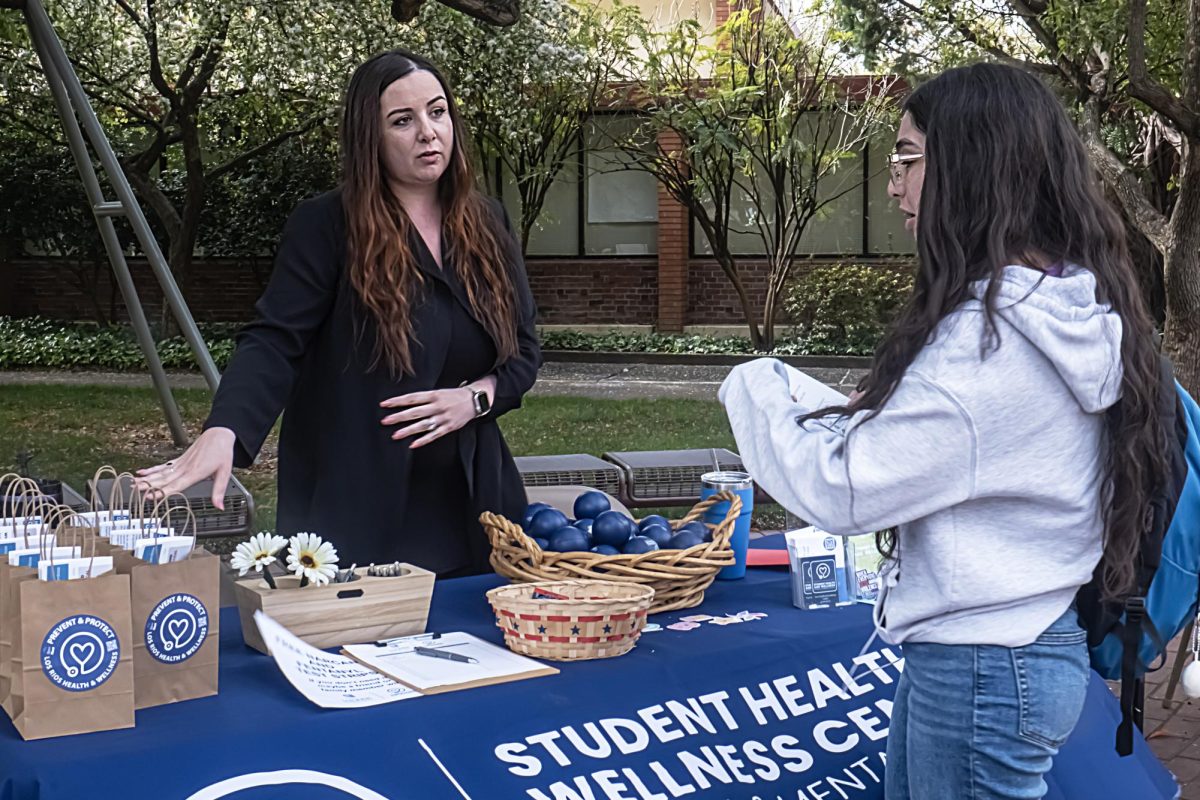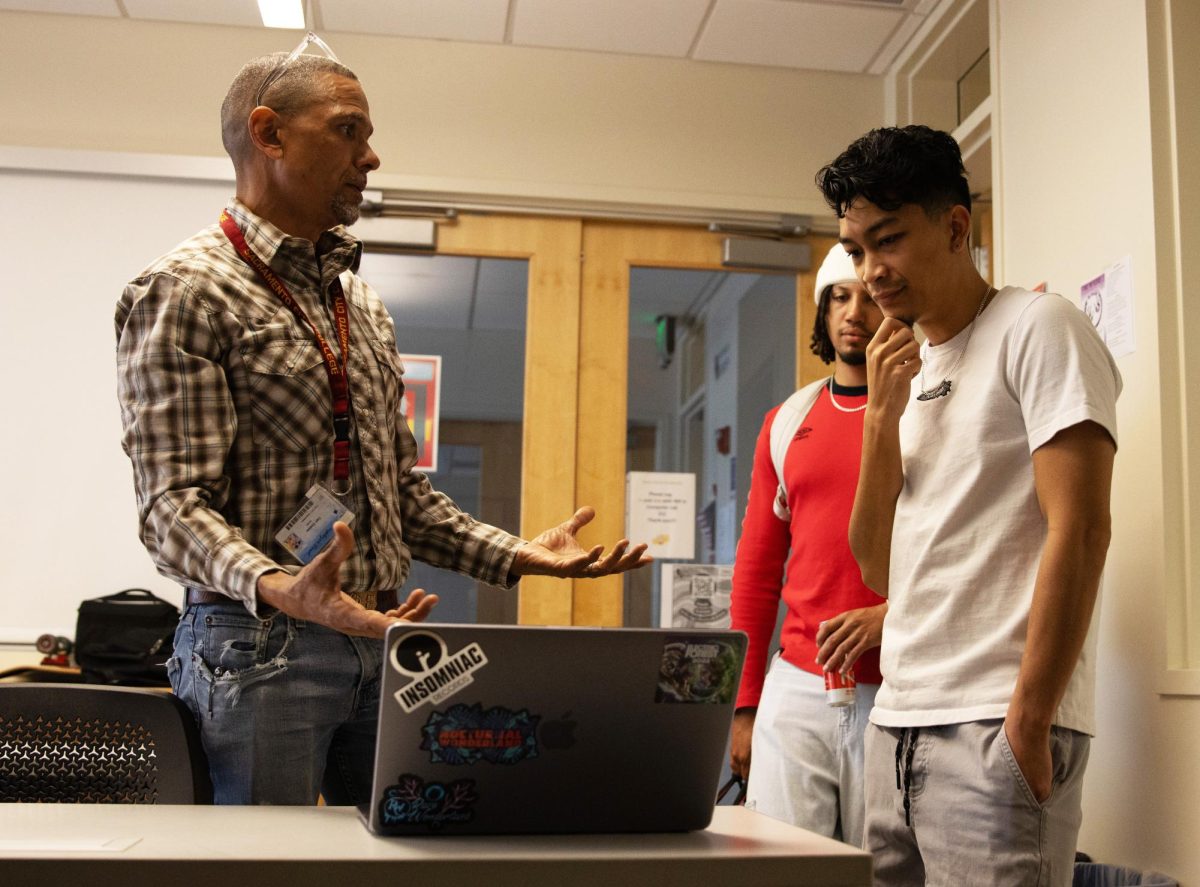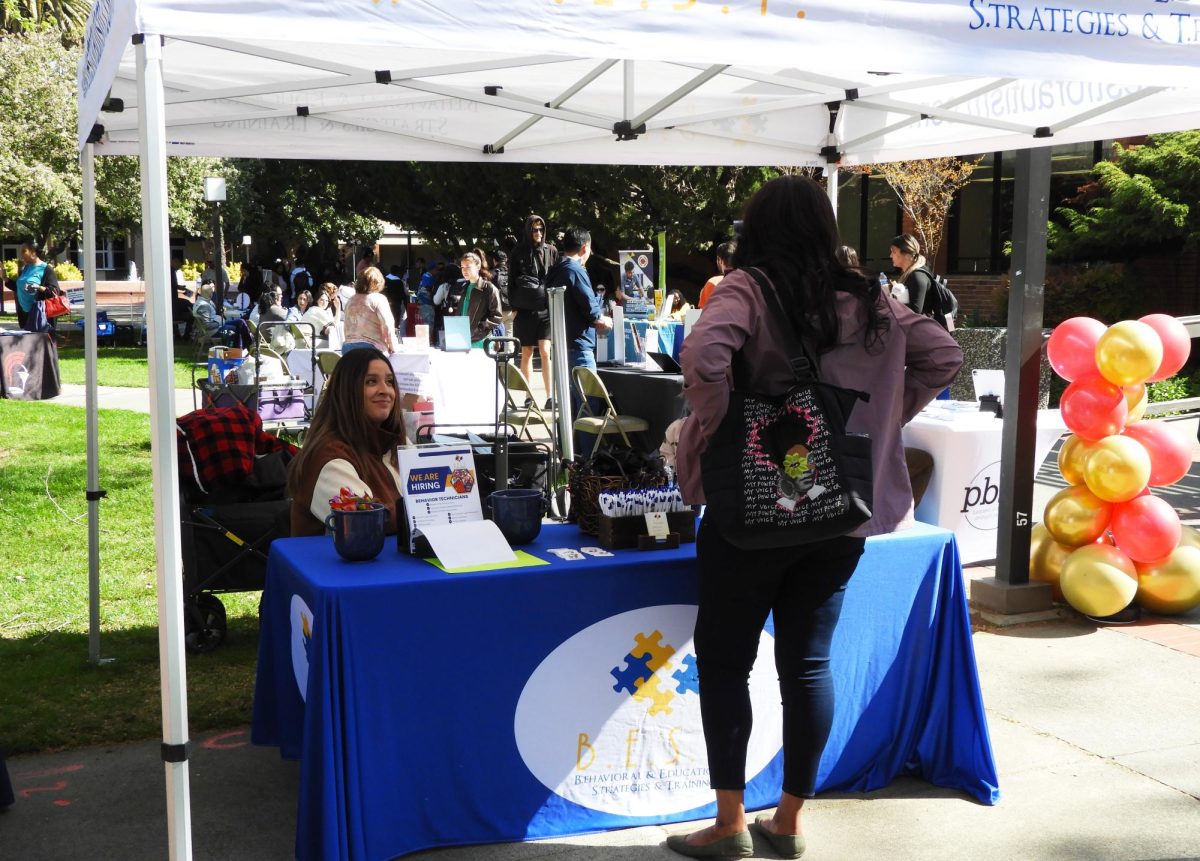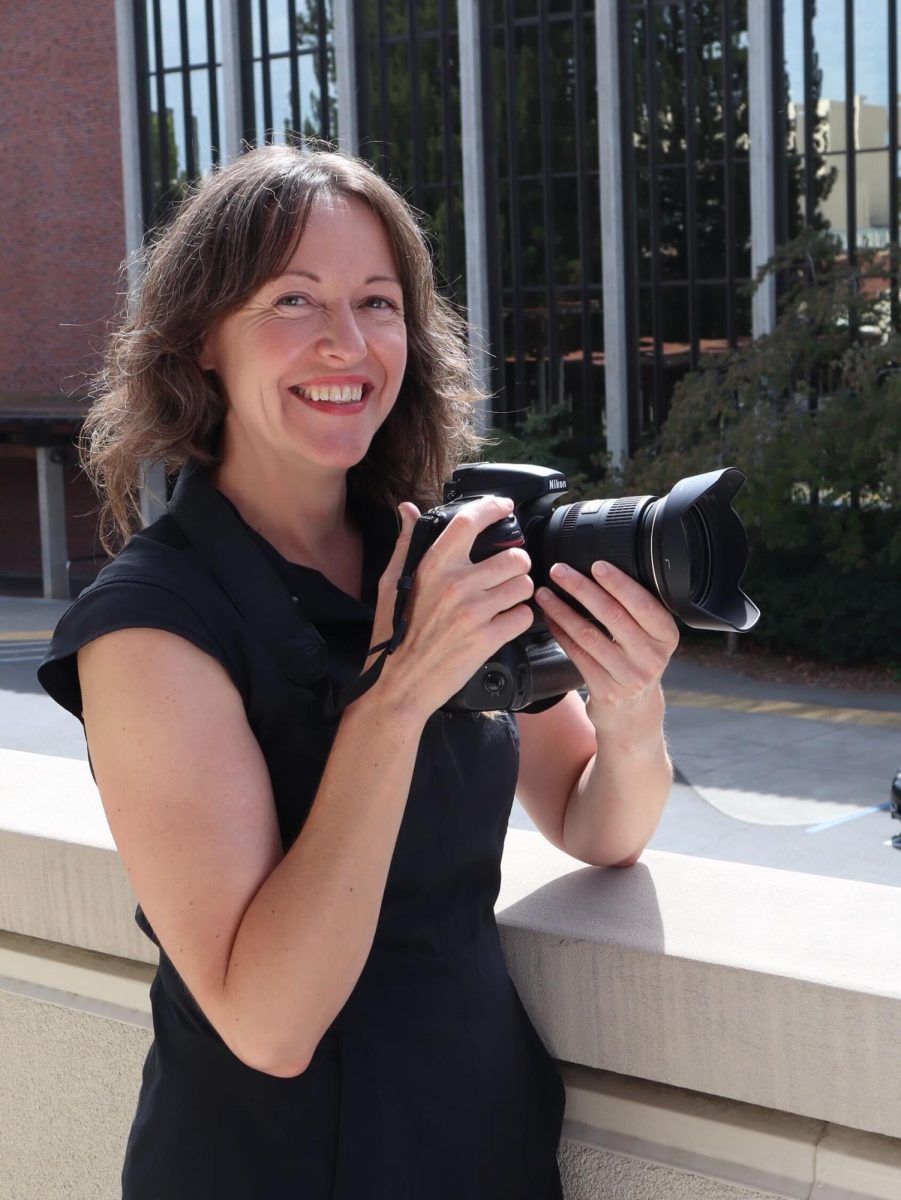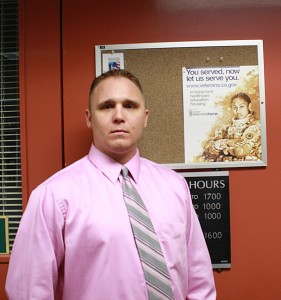
Transferring from the military life of guns and tanks to a civilian college atmosphere isn’t as easy as some would like to think, but former soldiers and college students are doing just that.
According to the Veterans Resource Center office at City College, there are roughly 430 veterans on campus this semester actively using their educational benefits.
Army veteran Alexis Penalver joined the U.S Army at the age of 17. For three years, he was an infantry soldier in Iraq. Penalver said his job was to fight on foot and engage the enemy face to face. He served three consecutive tours in Iraq and said that he was exposed to a lot of combat and death. After serving his time in the Army, he found it difficult to resume his civilian life.
“I was like a little soda can, you know,” Penalver said. “On the outside it looked normal, but inside, everything was going crazy.”
Veterans transitioning from active duty in the military to home and student life face an abundance of challenges. One of the toughest things for a veteran to do is ask for help, and Penalver said he was no exception.
“Speaking for myself,” he said, “being in the infantry, when you’re asked, ‘Is everything OK?’ your response is, ‘you’re fine.’
It’s easy to get lost in the Veterans Affairs system, according to Penalver. He said his experience with the VA hospital consisted of long waits in the lobby, being introduced to a new staff member hours before being seen by a doctor, and constantly having to retell his story, which he found aggravating.
“I’d meet a different doctor every time. It’s hard to tell my story through paper. They would read it and shoot me more pills,” Penalver said.
According to Fred Gusman, M.S.W, former director of the VA’s National Center of Post Traumatic Stress Disorders, the department of Veterans Affairs was founded in 1930. Its purpose is to provide health care and other services to veterans.
“One of the problems the VA is facing today is its largeness,” Gusman said. “It’s one of the largest health care providers in the country, so it makes it hard to be more personal.”
“What happens is in the military, we are trained to be strong and show no signs of weakness no matter what,” Penalver said. “That’s what I did for about a year or two. By 2005, I was suffering from a severe case of PTSD.”
In 2008, Penalver said he reached a breaking point, and had many thoughts of suicide. For about a year, Penalver spent most of his time checking himself into different facilities until a staff member at one of the facilities told him about a place called The Pathway, located in Yountville, Calif., provides comprehensive clinical services for warriors and recently discharged veterans, and they helped him cope with his depression.
According to Gusman, it has been named the largest PTSD residence in the country. Penalver attended college three times after Iraq. In 2005, he attended American River College for his general education, which he to said trying to cope with being around large groups of people was a hard enough task in itself due to his PTSD. He ended up putting school aside for a while and focused on his government security job.
In 2009, Penalver decided to give school another shot and attended City College. He said that it put him at ease knowing that his wife La’Prea Penalver, a City College cosmetology graduate, was on campus. He later became overwhelmed with his constant fear of being attacked and said he decided to drop out of school.
Penalver later learned a better way to get his education. In August 2010, he decided to take online courses at the University of Phoenix, and said he felt more comfortable sitting behind a computer in the comfort of his own home, than at a desk in a classroom. Associated Student Government President Justin Turner has a similar story. In 2003, he joined the U.S Army where he served as a Cavalry Scout in Baghdad, Iraq. His job was to obtain, distribute and share vital combat and battlefield information on the enemy and report back to commanders and leaders in the field. Before joining the Army, Turner described himself as wild, rambunctious, easy-going, and he didn’t take much seriously.
“During basic training, they brainwash you and break you down, only to build you up again to be what they want you to be,” he said. “They want you to be the best for their field.”
After serving his time in the Army, Turner said he gained a sense of professionalism, but he also battled anger, depression, and sleep deprivation.
“I walked around thinking people should understand what I went through, but with counseling I got to see other people’s points of view,” he said.
Turner is an advocate of soldiers seeking counseling.
“Without it, I’d be trapped in my own nightmare,” he said. “My heart filled with hate, and I wouldn’t have cared what happened to me. By freeing my demons, I opened my eyes to what life could be after war.”
At one point, Turner recalled he had a hard time adjusting to the traditional student life. “In the military things seemed a whole lot more simple. In society you don’t get to decide who lives or who dies. There are a whole different set of morals outside of the battlefield,” Turner said.
He explained that as veterans, they have a lot of life lessons, and he feels that they don’t give people the chance to comprehend what it is that they went through.
Today, not only is Turner the president of ASG, but he also assists other veterans in the Veterans Resource Center on campus, which helps the veterans with their educational benefits such as the G.I bill. There are multiple outlets for veterans. The VRC provides former soldiers with a safe and comfortable place to study. The Educational Counseling and Disabilities Services on campus offer counseling.
“It’s not always easy for soldiers to return to mainstream society,” Turner said. “As far as I know, the rest of the student population hasn’t killed someone. We focus more on bigger issues and less on the stress of tests.”
Meanwhile, Penalver was inspired by his family. He plans to graduate from the University of Phoenix with a master’s degree in Business in the year 2014.
“I’ve got an understanding wife. I’m lucky to have a woman like that,” he said. “because when someone comes back different than they were, it’s a true test of one’s love.”
















